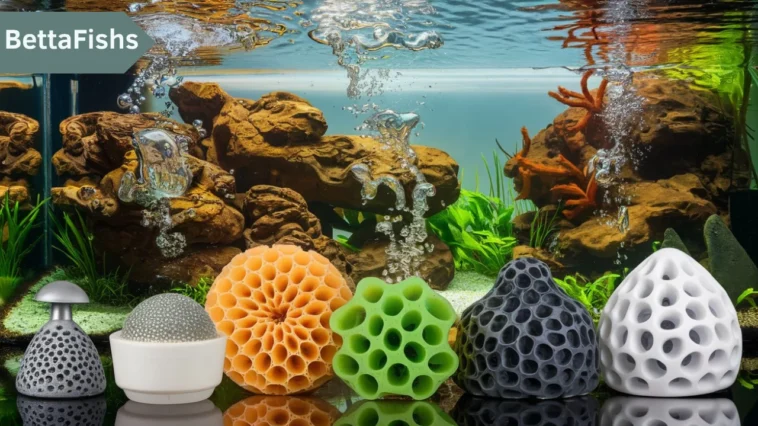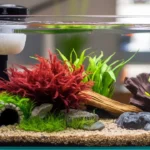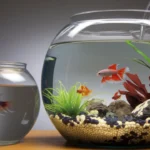Betta fish, also known as Siamese fighting fish, are one of the most popular choices for home aquariums. Known for their vibrant colors and flowing fins, they are captivating creatures. However, there are several misconceptions about their care, including whether or not they need a bubbler in their tank. In this guide, we will explore the essential aspects of betta fish care, focusing on ” Do betta fish need a bubbler? ” and the best ways to create a healthy environment for these beautiful fish.
Betta Fish Needs
Natural Habitat of Betta Fish
The shallow waters of Southeast Asian rice paddies, ponds, and leisurely-moving streams are the native habitat of betta fish. In their natural habitat, the water is warm, slightly acidic, and often low in oxygen. This environment has shaped their unique adaptations, such as the labyrinth organ, which allows them to breathe air directly from the surface.
Water Quality and Its Importance
The quality of water in a betta fish tank is crucial for their health and well-being. Betta fish are sensitive to changes in water conditions, and poor water quality can lead to stress, illness, and even death. Maintaining clean, oxygen-rich water is essential, but does this mean a bubbler is necessary?
What Is a Bubbler?
Definition and Function of a Bubbler
A bubbler, also known as an air stone or aerator, is a device that creates bubbles in an aquarium. It works by pumping air into the water, which helps increase oxygen levels and promotes water circulation. Bubblers are commonly used in fish tanks to ensure the water is well-oxygenated.
Different Types of Bubblers for Aquariums
There are several types of bubblers available for aquariums, ranging from simple air stones to more elaborate systems with adjustable airflow. The choice of bubbler depends on the size of the tank, the type of fish, and the desired aesthetic.
Do Betta Fish Need a Bubbler?
Natural Breathing Mechanisms of Betta Fish
Betta fish have a specialized organ called the labyrinth organ, which allows them to breathe air directly from the surface. This adaptation means they can survive in low-oxygen environments where other fish might struggle. Therefore, in a typical home aquarium with proper water conditions, a bubbler is not a necessity for betta fish.
Situations Where a Bubbler Might Be Necessary
While betta fish do not require a bubbler under normal conditions, there are situations where one might be beneficial. If the tank is heavily stocked with other fish or plants, or if it is larger with less surface area, a bubbler can help maintain adequate oxygen levels and improve water circulation.
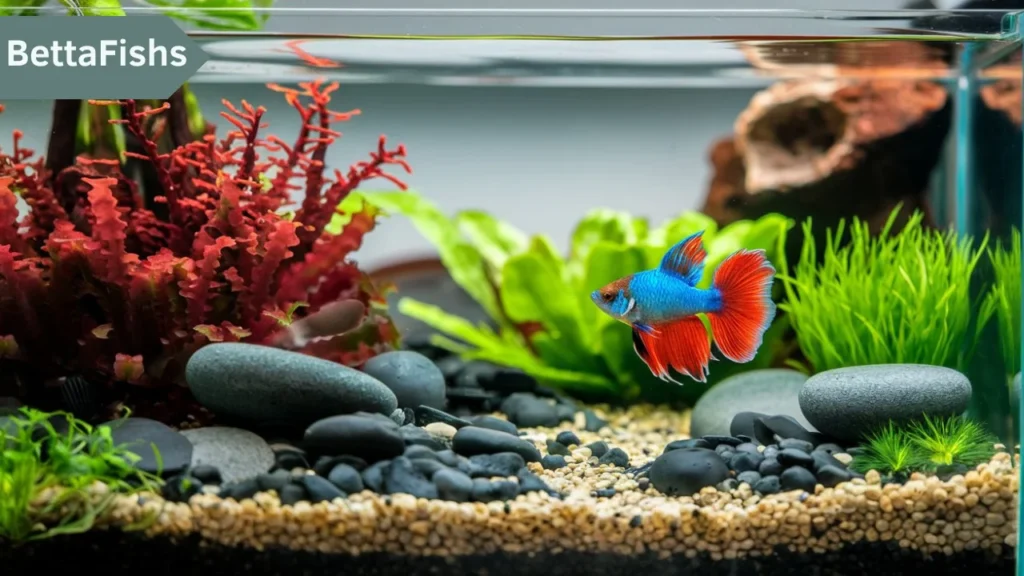
Benefits and Drawbacks of Bubblers for Betta Fish
Advantages of Bubblers
- Improved Oxygenation: Bubblers increase the oxygen levels in the tank, which can be beneficial if the tank has low surface agitation.
- Enhanced Water Circulation: They help circulate water throughout the tank, preventing dead spots where waste can accumulate.
- Aesthetic Appeal: Some aquarists enjoy the visual appeal of bubbles rising through the water, adding movement and interest to the tank.
Potential Downsides
- Unnecessary in Some Tanks: In small, well-maintained tanks, a bubbler might be redundant, especially if the betta fish has ample access to the water surface.
- Stress for Betta Fish: Betta fish prefer calm waters, and strong currents from bubblers can cause stress, affecting their overall well-being.
Alternatives to Bubblers
Live Plants
Adding live plants to your aquarium can naturally increase oxygen levels. Plants undergo photosynthesis, which produces oxygen, making them a great addition to a betta tank.
Sponge Filters
Sponge filters provide gentle filtration and aeration without creating strong currents, making them ideal for betta fish tanks.
Frequent Water Changes
Regular water changes help maintain high water quality and oxygen levels, reducing the need for a bubbler in a betta fish tank.
How to Set Up a Betta Fish Tank Without a Bubbler
Choosing the Right Tank Size
A tank size of at least 5 gallons is recommended for betta fish. This size allows for stable water conditions and ample swimming space.
Optimal Water Conditions
The ideal water temperature range for betta fish is 76–82°F (24–28°C). Use a gentle filter to keep the water clean without creating strong currents.
Plants and Decorations
Incorporate live or silk plants and smooth decorations to create a natural habitat. Avoid sharp objects that could damage the betta’s delicate fins.
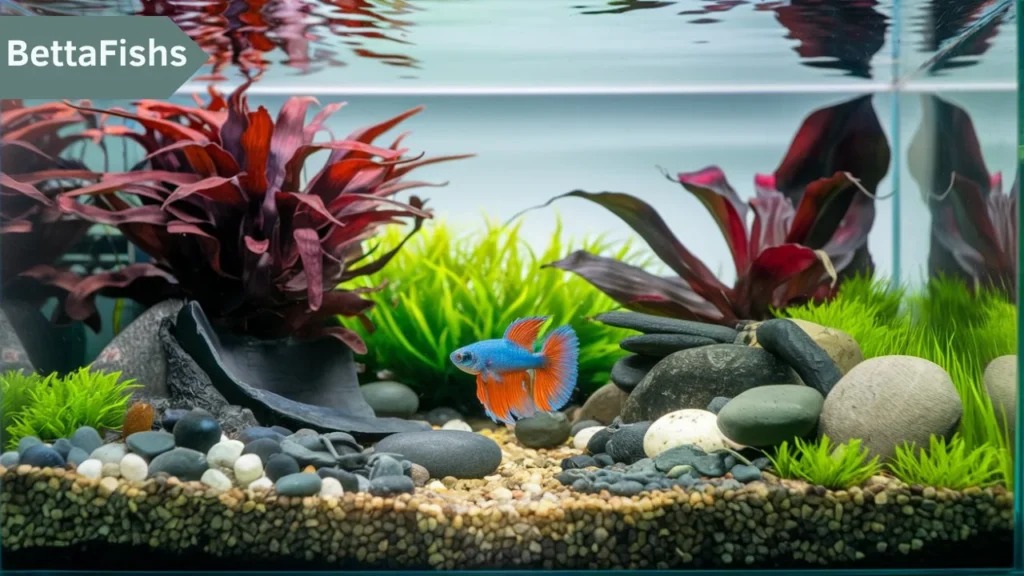
Signs Your Betta Fish Might Need More Oxygen
Recognizing Stress and Breathing Problems
Signs that your betta fish may be struggling with low oxygen levels include gasping at the surface, lethargy, and a lack of appetite. Observing these behaviors can help you determine if a bubbler or other intervention is needed.
Behavioral Indicators
Active swimming and frequent bubble-nest building are good signs of a healthy, happy betta fish. If you notice a decrease in these behaviors, it might indicate stress or poor water conditions.
Betta Fish and Tank Mates
Compatibility with Other Fish
Betta fish can be aggressive, so choosing compatible tank mates is crucial. Peaceful, non-fin-nipping fish are usually the best choice.
Impact of Tank Mates on Oxygen Levels
Adding more fish to the tank increases the bioload, which can reduce oxygen levels. In such cases, a bubbler or additional aeration might be necessary.
Maintaining a Healthy Environment for Betta Fish
Regular Tank Maintenance
Perform regular water changes, clean the substrate, and monitor water parameters to ensure a healthy environment for your betta fish.
Monitoring Water Quality
Use water test kits to regularly check for ammonia, nitrites, nitrates, and pH levels. Maintaining optimal water quality is key to preventing stress and illness in betta fish.
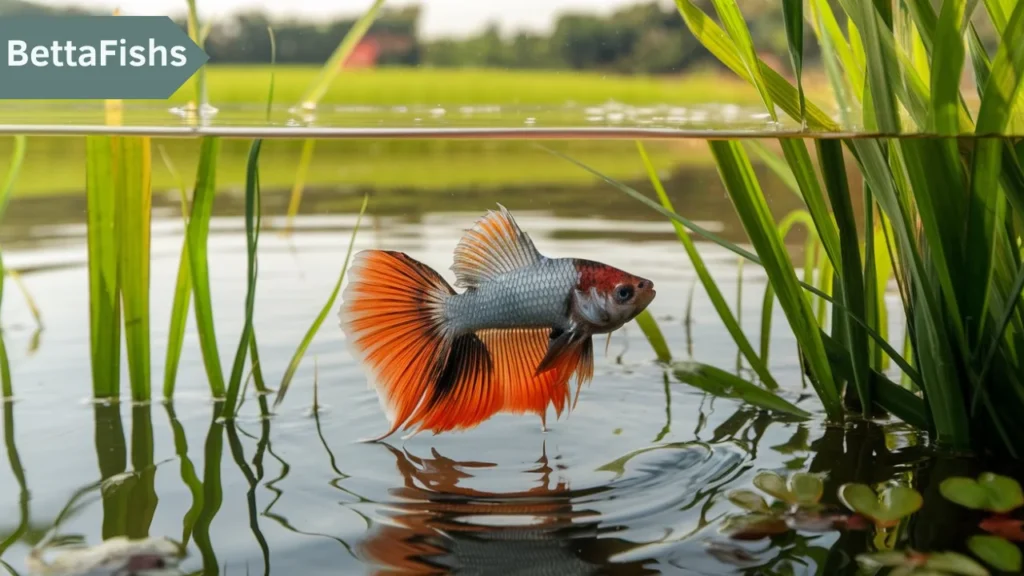
Conclusion
While betta fish do not inherently need a bubbler due to their ability to breathe air from the surface, there are specific circumstances where additional aeration might be beneficial. Understanding the natural behaviors and needs of your betta fish, along with providing a well-maintained environment, is key to ensuring their health and happiness.
FAQs
Can a bubbler be harmful to a betta fish?
While not usually harmful, a strong bubbler can create stress by causing too much water movement. Always choose a gentle bubbler if necessary.
What is the best type of bubbler for a betta tank?
A small air stone or a gentle sponge filter is ideal for providing mild aeration without creating strong currents.
How can I tell if my betta fish is happy?
A happy betta fish is active, eats well, and frequently builds bubble nests at the water’s surface.
Should I keep the tank light on for my betta fish?
Betta fish benefit from a regular day-night cycle. Use a timer to ensure they have about 8-12 hours of light each day.
Can betta fish live in a bowl without a filter or heater?
While they can survive, it is not ideal. Betta fish thrive in a well-maintained tank with stable water conditions, which are difficult to maintain in a small bowl.


